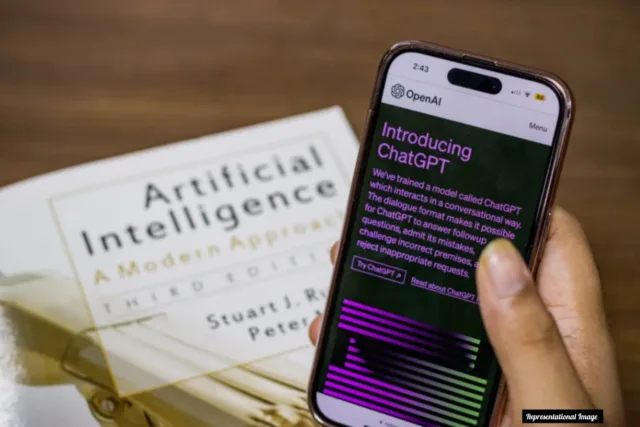by Gilroy Menezes
The emergence of Artificial Intelligence (AI) and its application in various facets of life and work has been the source of unending debate. The application of this technology in the field of education has also drawn both positive and sometimes negative feedback from experts. But there is no denying the fact that instead of shunning emerging technology, the integration of AI could play a pivotal role in changing the way education curriculum is structured.
India now has a new, comprehensive and dynamic education policy that responds to the emerging aspirations of the millennial generation. Despite being in its early stages of development in India, Artificial Intelligence has paved its way into the National Education Policy (NEP). Recently, according to a written reply to the Lok Sabha by the Minister of State for Education Annpurna Devi, the Government of India has recommended that teachers be trained in AI, design thinking and other subjects like AI-enabled Digital Infrastructure for Knowledge Sharing.
As the Central Board of Secondary Education incorporates ‘Artificial Intelligence’ as a subject in affiliated schools, it highlights the government’s proactive approach towards an AI-driven curriculum, urging educational institutions to embrace the imminent positive disruption caused by the technology.
Keeping that in mind, the availability of smart classrooms since 2000, the introduction of AI enabled classrooms is yet a far-fetched dream. The reason being the lack of effective measures in place to implement use of AI in classrooms. The integration of AI and education has immense potential to revolutionise learning experience by enabling students to explore new educational possibilities.
Globally, the education system has struggled to embrace AI technology. The rapid advancements in AI have outpaced the education sector’s ability to fully adopt and harness its benefits. Over the years, Gen Z has taken the initiative to explore and leverage AI tools to their advantage, using applications such as ChatGPT and other generative AI platforms. While these platforms are not specifically designed for educational purposes, students have recognised their value and have actively engaged with them.
Another aspect to consider is personalisation. Using tech to our advantage, AI has the ability to recognise each student’s learning ability. Understanding the students’ learning capacity, educators will have the ability to curate a more effective and interactive learning experience.
AI can play a significant role in reducing the workload on teachers, particularly by assisting in tasks that do not require direct teacher-student interaction. By utilising AI to automate repetitive tasks like book corrections, subject evaluations and test grading, teachers can allocate more of their time to mentoring and providing quality support to students. This allows teachers to focus on their core responsibilities as educators and enhances the overall learning environment.
The main place where AI can be leveraged is serving as an impractical assessor for at-risk students, mitigating potential biases that can arise with teachers. By relying on AI, objective evaluations can be made, ensuring that students in need receive appropriate support without any teacher bias. This presents an effective and fair way to utilise AI in education.
AI can address challenges related to determining the pass level for students transitioning between grades. Making this judgement can be subjective for teachers, but with the help of AI and available data, an educator can apply objective criteria. This allows for more consistent and fair decisions regarding student progression within the education system.
In order to bridge the gap between AI technology and education, there is a need for concerted efforts from educational institutions, policymakers and technology developers. AI-enabled classrooms have the potential to enhance personalised learning, provide real-time feedback, facilitate adaptive teaching methods and offer immersive educational experiences. A comprehensive framework for integrating AI into classrooms needs to be developed, addressing concerns such as data privacy, ethical considerations and equitable access to AI resources. By embracing AI technology, the education sector can unlock a new era of learning and prepare students for the challenges of the future.
Gilroy Menezes, VP of Technology at Kilowott, with nearly two decades of expertise in specialised application design and development speaks on the possibility of AI-powered classrooms ushering in a new era in education in the country.



